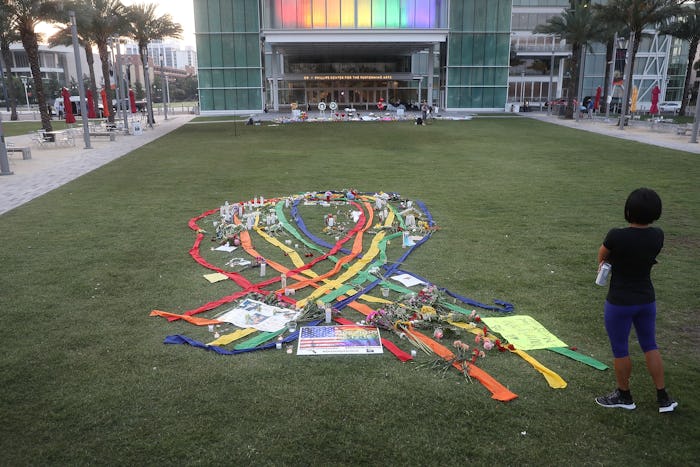News

Here's Why Talking About The Orlando Shooter Instead Of The Victims Is Dangerous
Ever since a gunman walked into Pulse, a gay nightclub in Orlando, and shot more than 100 people, killing 49, public interested in the alleged murderer immediately broke out. Who is Omar Mateen? What were his motives? Was he mentally ill, or just a violence-driven bigot? People's curiosity is understandable: Humans have an always held an inherent interest in the unexplainable, whether that's the origins of the universe or how a mass murderer's mind ticks. But talking about the Orlando shooter is dangerous, especially when it happens on the scale of worldwide media.
Interest in mass murderers is nothing new: from the "Vampire of Barcelona" in the late 1800s to the "Son of Sam" in the 1970s to Anders Behring Breivik in 2011, mass murderers have drawn interest from the public and the press for centuries. As Dr. Scott Bonn, an associate professor of criminology at Drew University, explained in Psychology Today:
Serial killers are so extreme in their brutality and so seemingly unnatural in their behavior that people are drawn to them out of intense curiosity.
In other words, that interest is perfectly normal, and it's widespread across the population. However, there's one very good reason not to feed that curiosity for the unnatural: because the more attention serial killers and mass murderers get, the more people are driven to commit similar crimes.
Just under a year ago, a team of researchers published findings that showed a direct "contagion" between media coverage of mass shootings and subsequent murders. As it turns out, 30 percent of mass shootings and 22 percent of school shootings are sparked by recent, similar mass murders. (On a side note, the researchers found that the prevalence of firearm ownership in a state was significantly correlated with that state's prevalence of mass shootings, school shootings, and suicides. Food for thought, for those against firearm regulation.)
As the lead author of the study, Sherry Towers, told Newsweek:
What we found was, in [mass killings] that didn’t get a lot of media attention there was no contagion, and in the ones where we did see a lot of media attention, that’s where we saw the contagion.
That contagion is also the reason media generally doesn't delve into details regarding suicides anymore, according to The Atlantic: for at-risk individuals, knowing the where, how, and why behind a recent suicide gives individuals actionable steps — which helps prompt action. It's the same with eating disorders: if people share the fewest amount of calories they ate, their lowest weight, or the methods they pursued to do so, they can accidentally prompt what the National Eating Disorders Association calls "a race to the bottom."
For mass killings, it's a race to notoriety. By reporting the inner lives of mass murderers and making their names recognizable, other potential mass murderers see that going out in a blaze of killings provides the attention their wounded egos crave. According to The Wall Street Journal, mass murderers feel a sense of grandiosity, self-entitlement, and resentment. Seeing coverage of mass shootings center around perpetrators gives at-risk individuals reason to carry out their plans. They crave attention and recognition, and this is a way to ensure it long after they've gone.
It seems media should avoid covering things like what the Orlando shooter said to police officers that made him seem "collected," but, like any business, media caters to their audience — so it's up to us to show lack of interest. Don't share killers' stories. Don't watch their propaganda videos or read their manifestos. Ignore their motives and methods, forget the killer's name, and don't click on photos of the criminal or Snapchat videos of the scene of their crime.
By keeping mum on the Orlando killer, your effect is twofold: you won't be carrying out the Orlando killer's last wishes by making him notorious, and chances are, you'll help prevent the number of copycat crimes that unfold in the future.